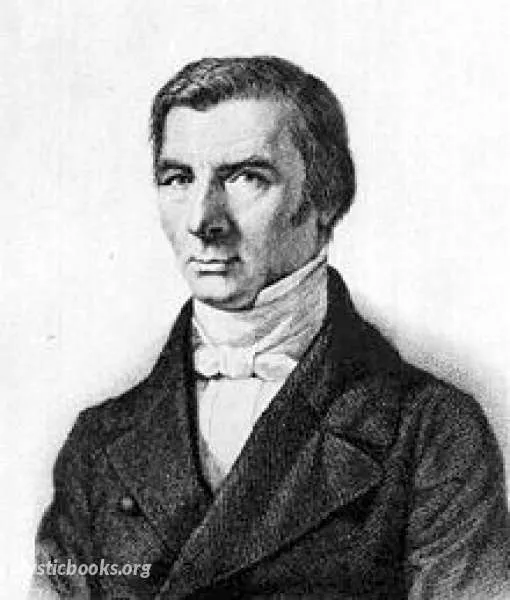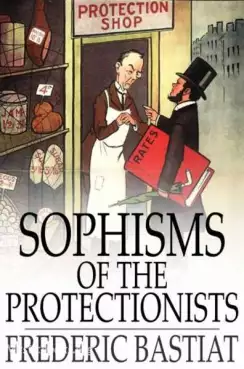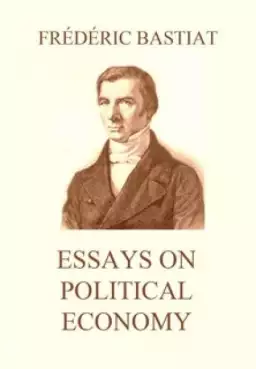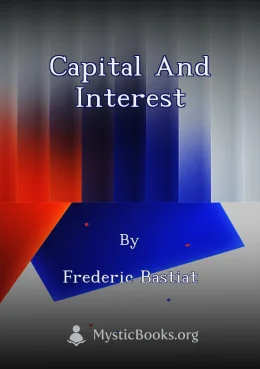
Timeline
Title
Country/Nationality
Frederic Bastiat
Claude-Frédéric Bastiat was a French economist, writer and a prominent member of the French Liberal School.
A member of the French National Assembly, Bastiat developed the economic concept of opportunity cost and introduced the parable of the broken window. He was described as “the most brilliant economic journalist who ever lived” by economic theorist Joseph Schumpeter.
As an advocate of classical economics and the economics of Adam Smith, his views favored a free market and influenced the Austrian School. He is best known for his book The Law where he argued that law must protect rights such as private property, not "plunder" others' property.
Bastiat was born on 29 June 1801 in Bayonne, Aquitaine, a port town in the south of France on the Bay of Biscay. His father, Pierre Bastiat, was a prominent businessman in the town. His mother died in 1808 when Frédéric was seven years old. His father moved inland to the town of Mugron, with Frédéric following soon afterward. The Bastiat estate in Mugron had been acquired during the French Revolution and had previously belonged to the Marquis of Poyanne. Pierre Bastiat died in 1810, leaving Frédéric an orphan. He was fostered by his paternal grandfather and his unmarried aunt Justine Bastiat. He attended a school in Bayonne, but his aunt thought poorly of it and so enrolled him in the school Saint-Sever. At age 17, he left school at Sorèze to work for his uncle in his family's export business. It was the same firm where his father had been a partner.
Bastiat began to develop an intellectual interest as he no longer wished to work with his uncle and desired to go to Paris for formal studies. This hope was not realized as his grandfather was in poor health and wished to go to the Mugron estate. Bastiat accompanied him and cared for him. The next year when Bastiat was 24, his grandfather died, leaving him the family estate, thereby providing him with the means to further his theoretical inquiries. Bastiat developed intellectual interests in several areas including philosophy, history, politics, religion, travel, poetry, political economy and biography. After the middle-class Revolution of 1830, Bastiat became politically active and was elected justice of the peace of Mugron in 1831 and to the Council General (county-level assembly) of Landes in 1832. Bastiat was elected to the national legislative assembly after the French Revolution of 1848.
His public career as an economist began only in 1844, when his first article was published in the Journal des économistes during October of that year and it was ended by his untimely death in 1850. Bastiat contracted tuberculosis, probably during his tours throughout France to promote his ideas and that illness eventually prevented him from making further speeches (particularly at the legislative assembly to which he was elected in 1848 and 1849) and ended his life. In The Law, he wrote: "Until the day of my death, I shall proclaim this principle with all the force of my lungs (which alas! is all too inadequate)".
This last line is understood by translators to be a reference to the effects of his tuberculosis. During the autumn of 1850, he was sent to Italy by his doctors and he first traveled to Pisa, then to Rome. On 24 December 1850, Bastiat called those with him to approach his bed and murmured twice the words "the truth" before he died at the age of 49.
Books by Frederic Bastiat

Sophisms of the Protectionists
"To rob the public, it is necessary to deceive them," Bastiat said and believed. He reasoned, employing repetition to various applications, against fallacious arguments promoting the "Protection" of industries to the detriment of consumers and societ...

Essays on Political Economy
Bastiat asserted that the only purpose of government is to defend the right of an individual to life, liberty, and property. From this definition, Bastiat concluded that the law cannot defend life, liberty and property if it promotes socialist polici...

Capital and Interest
Capital and Interest is an essay by French economist Frédéric Bastiat that addresses the popular fallacy of the day that capital should be available to all gratuitously, without the necessity of paying back loans, and looking upon any form of interes...

Law
In "The Law", Frédéric Bastiat provides a powerful critique of government intervention in the economy. He argues that the role of government should be limited to protecting individual rights and enforcing contracts, and that any other form of interve...